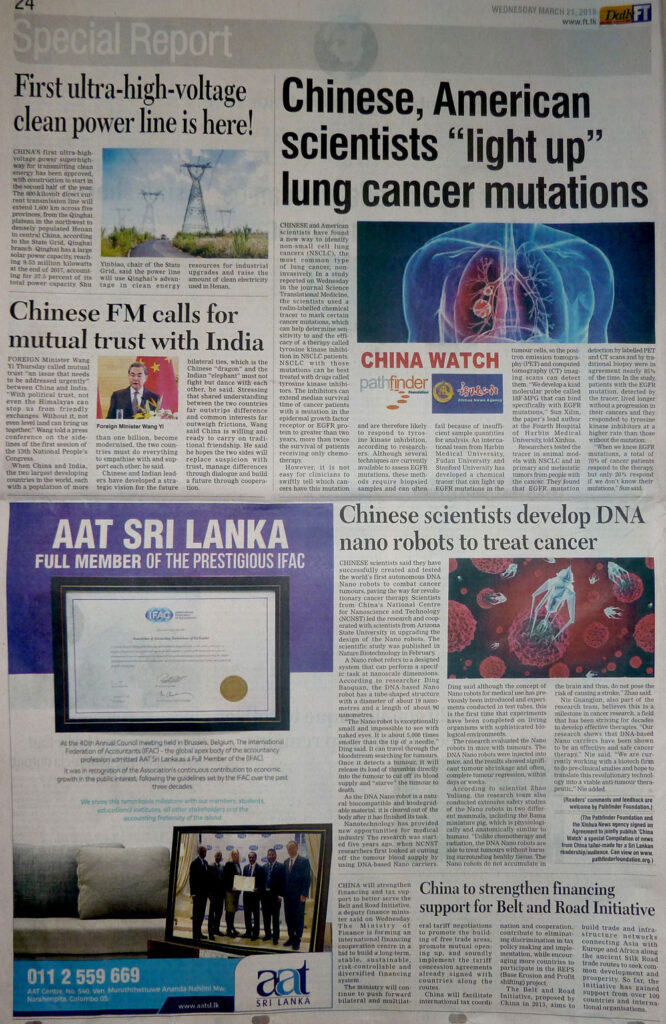WASHINGTON, March 7 (Xinhua) — Chinese and American scientists have found a new way to identify non-small cell lung cancers (NSCLC), the most common type of lung cancer, non-invasively. In a study reported on Wednesday in the journal Science Translational Medicine, the scientists used a radio-labeled chemical tracer to mark certain cancer mutations, which can help determine sensitivity to and the efficacy of a therapy called tyrosine kinase inhibition in NSCLC patients. NSCLC with those mutations can be best treated with drugs called tyrosine kinase inhibitors. The inhibitors can extend median survival time of cancer patients with a mutation in the epidermal growth factor receptor or EGFR protein to greater than two years, more than twice the survival of patients receiving only chemotherapy.






